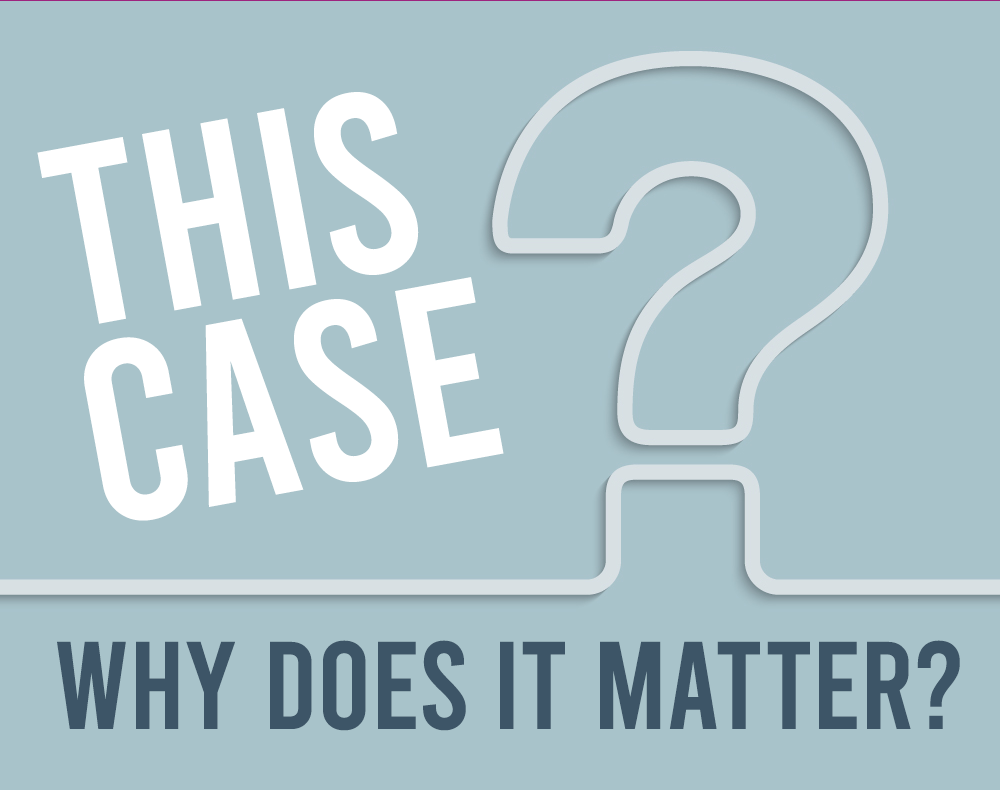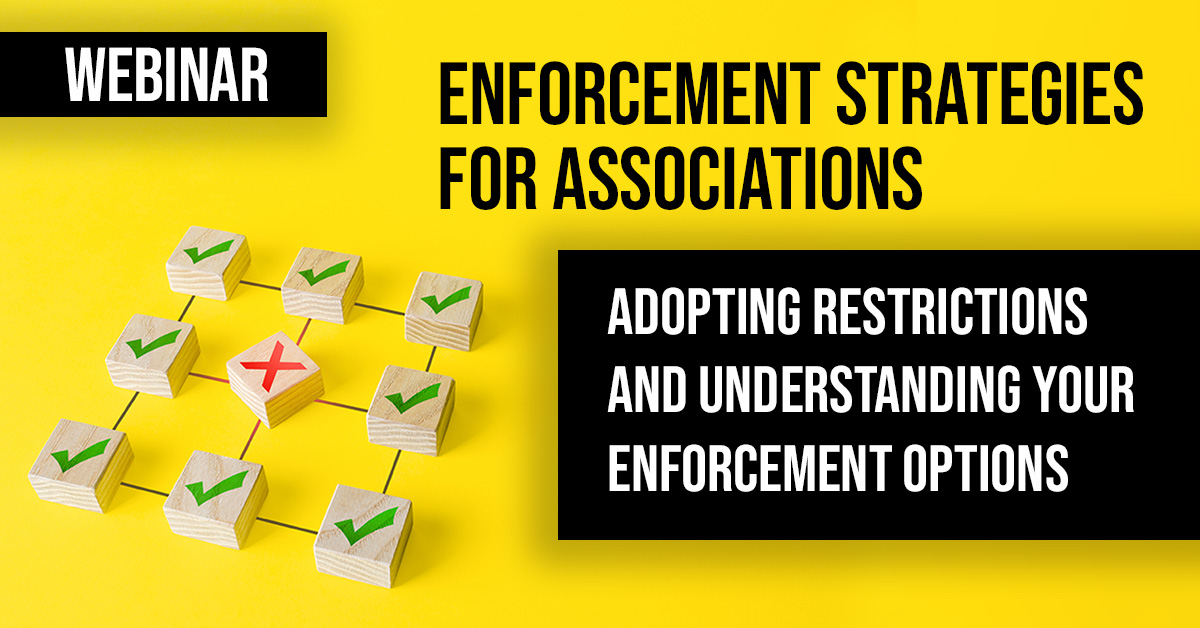Stay up to date with Becker’s dedicated resource page on COVID-19. All information is posted to educate and inform our clients but does not constitute specific legal advice for your community. Please consult your Becker attorney for questions specific to your own community. CLICK HERE
In this Issue
Spring is just around the corner and sprucing up is often top of mind. Whether that means improving yards, documents, or relationships, this edition of Becker’s Community Update offers practical guidance on how to move forward. Check out the hot topics below, and don’t forget to connect with us on Facebook to get real time updates on these issues and more!
While Mother Nature may be hard to harness, community associations are often tasked with doing just that to protect both residents and property. In Responsibility for Tree Branches and Roots Elizabeth Lanham-Patrie explores how the law decides who needs to tackle this chore.
In the second part of our two part series Amending Governing Documents, Jay Roberts outlines best practices for getting proposed changes approved by membership.
Maritrini Soto Garcia discusses presidential power in Does a Community Association Board President Have Executive Action Authority or Unilateral Powers?, and reminds everyone that the work of a community association is, ultimately, a group effort.
Assessments are not the most popular feature of a community association, but they are a vital resource in maintaining the amenities and ambiance to which the community has grown accustomed. In THIS CASE: Abbey Park Homeowners Association, Inc. v. Bowen, Rob Caves reviews how the Florida court decided the seminal case regarding an owner’s right to withhold payment of an assessment.
Mark D. Friedman, Esq. & Jay Roberts, Esq., Editors
-
 Responsibility for Tree Branches and Roots
Responsibility for Tree Branches and RootsWho is responsible for a tree branch that perilously hangs over a neighbor’s house or yard? Who is responsible for tree roots that are damaging a sidewalk or driveway?
Florida common law provides that a property owner (owner …
Continue Reading →
Amending Governing Documents Part II – How?
In Part I of this two-part series, we discussed the importance of amending governing documents. Part II discusses tips on how a board of directors can put itself in the best position to have the proposed amendments approved by the membership.
START EARLY:
Work with the association’s counsel to craft the language appropriate for the amendments well before you plan to present it to the membership formally.
Does a Community Association Board President Have Executive Action Authority or Unilateral Powers?
By: Maritrini Soto Garcia, Esq.
Community associations are not administered by a single director or officer of the board, instead, the affairs of such associations are administered by its board. The articles of incorporation and/or bylaws of an association most often specify the required minimum number of board members. In the condominium context, the Florida Condominium Act provides that in the absence of such specification, the board of administration must be composed of five members (or three members in condominiums with five or fewer units).

Abbey Park Homeowners Association, Inc. v. Bowen,
508 So.2d 554 (Fla. 4th DCA 1987)
By: Rob Caves, Esq.
Assessments paid by owners are the lifeblood of any community association and efforts to collect assessments are the most consequential and common legal proceedings any association engages in. Typically, there are few valid defenses an owner can raise to challenge the collection of properly adopted assessments. One common defense that is attempted is that the association is failing to properly maintain the common elements of a condominium or the common areas of a homeowners’ association.
The seminal case on the issue of whether owners can withhold the payment of assessments due to the association’s failure to properly maintain the common elements is Abbey Park Homeowners Association, Inc. v. Bowen, 508 So.2d 554 (Fla. 4th DCA 1987). In the case, the appellate court held that the failure to maintain the common elements is not an affirmative defense to the association’s action to foreclose on the unit for the failure to pay assessments. Accordingly, a claim by an owner that the association is improperly maintaining the condominium property would not be a valid defense to the association’s action to collect unpaid assessments or enforce the association’s assessment lien against a unit.
However, there are subsequent cases that hold that while such claims are not affirmative defenses to a foreclosure action by an association, they could constitute counterclaims and entitle the owner to a “set-off” if they were to prove that the association failed to properly maintain the condominium property and such failure resulted in damage to the unit owner or their property. See Qualcom Corp. v. Global Commerce Center Association, Inc., 59 So. 3d 347 (Fla. 4th DCA 2011) (holding that the owner was able to argue at trial that its damages from a roof leak, if proven, could be a “set-off” against the outstanding assessments). However, the facts which would entitle an owner to a set-off would be very specific and would not apply to an owner’s general allegation that the common elements, or common areas, were not being maintained, as was alleged in Abbey Park.
Accordingly, pursuant to the legal principles outlined in the Abbey Park case, the fact that an owner alleges that the association is not properly maintaining the common property, or operating the association, would not be a defense against the association’s action to collect properly levied assessments.
Question of the Month
Q: There are numerous parking violations and pet violations occurring in my condominium community. I don’t believe the board and manager are taking proper enforcement actions. Are owners entitled to review board meeting minutes to see what, if anything, is being done to address these ongoing violations? Am I entitled to copies of any demand sent by the association to these violators?
David Muller provides the answer to this question and others.
Help Your Clients Avoid Stumbling into Fair Housing Problems
By: Community Association Management Insider
By: David Muller, JoAnn Nesta Burnett
Community Association Management Insider recently asked several legal practitioners to identify those seemingly innocent practices that could land community associations in court for fair housing violations.
David Muller and JoAnn Burnett pointed out that most avoidable disputes were rooted in poor handling of unreasonable accommodation requests, inadvertent familial discrimination, failure to comply with 55+ requirements, and neglecting basic criminal background checks. Others listed lack of sensitivity or inclusion and offensive behavior at meetings as areas in which to err on the side of caution.
To read the entirety of this discussion, please click here for Part 1 and click here for Part 2.
Projects in Mind for the New Year?
FLCAJ Magazine
By: Lilliana M. Farinas-Sabogal, Esq.
For many, 2020 felt like it was a giant pause button in an otherwise whirlwind of activity. Due to health and safety concerns related to COVID-19, many planned repairs and/or replacement projects were postponed. As the new year starts off, communities may begin to look at starting these projects anew. If your community is one of these, it’s a good time to review important considerations when dealing with repair, maintenance, and renovation projects.
Statewide Suspension of Community Association Classes
Becker has been closely monitoring the latest coronavirus (COVID-19) developments. In the continued interest of the health and safety of our clients and colleagues, we have made a decision to continue the suspension of all Community Association classes until further notice.
As always, we will keep you informed of any changes and updates.
CALLING ALL BOARD MEMBERS AND COMMUNITY MANAGERS
As a service to the community and industry, we are pleased to offer some of our most popular classes online! While our in-person classes remain suspended until further notice due to COVID-19, we are thrilled to bring you the following classes to participate in from the comfort of your own home.
- HOA/Condo Board Member Certification
- Disaster Preparedness and Recovery
- Anatomy of a Water Leak
- Understanding Our Bylaws
- Is a “No Pet” Building a Thing of the Past?
- How to Properly Run an Election
- Budgeting & Reserves
- Covering Your Assets: How to Avoid Board Member Liability
- Collection and Foreclosure Strategies for Community Associations
- Dealing with Difficult People
- Construction Projects Gone Wild
- 2021 Legal Update
A newly filed bill by Sen. Jason Pizzo, SB 1490, could create a significant change in terms of an association’s ability to invest the community’s operating and reserve funds in depositories other than a traditional bank or savings and loan.
Becker’s Community Association Leadership Lobby (CALL) discusses what this could mean for community associations.
UPCOMING AND RECENT WEBINARS
Enforcement Strategies for Associations
The adoption and enforcement of rules are the means by which a community defines and preserves a lifestyle. Consistency in enforcement is critical and has never been more critical than it is now, during a life-threatening pandemic. Board members and property managers need to be aware of their responsibility to enforce the rules and how to handle violations when they occur. As always, Becker is here to offer guidance to help ensure the health, safety, and quality of life in your community.
Castle Group’s COVID-19 Webinar Series: Season 2, Episode 10
Becker Community Association Shareholder Donna DiMaggio Berger participated in Season 2, Episode 10 of the Castle Group’s Association Leadership webinar series. She was joined by Castle Group Founder and CEO James Donnelly for a discussion on association leadership and how to deal with COVID-19 stressed residents in your community.









![look-[Converted]](https://www.floridacondohoalawblog.com/wp-content/uploads/2020/04/look-Converted.png)




